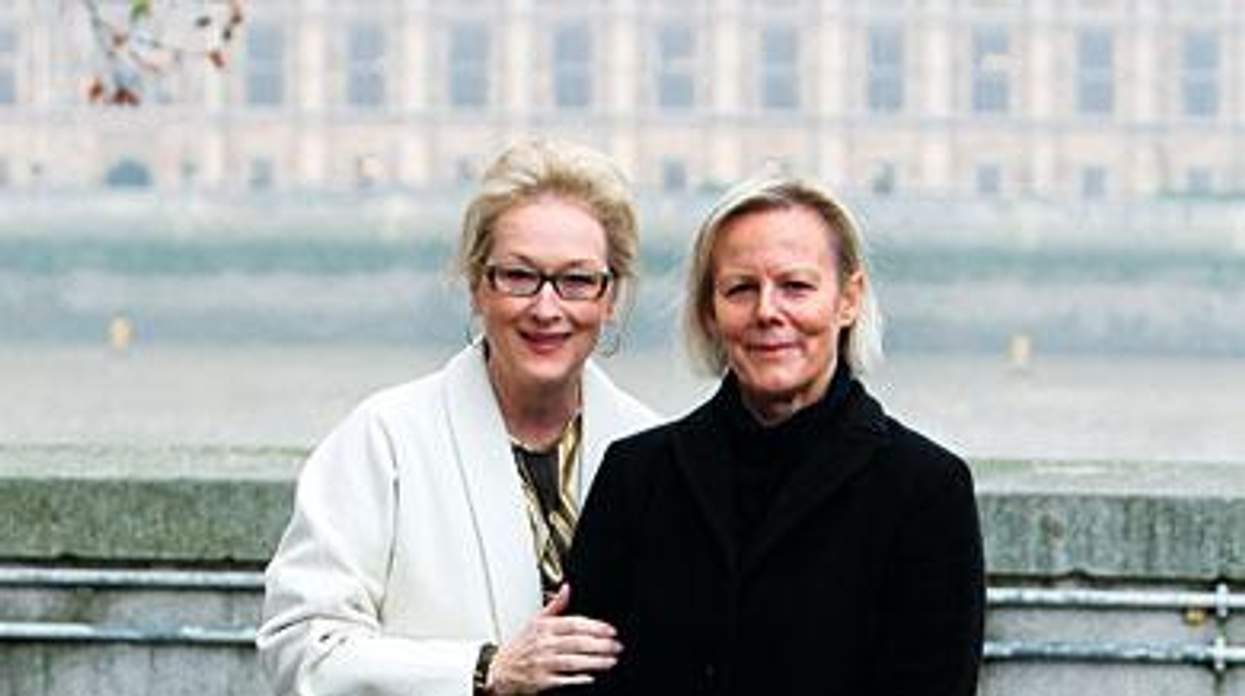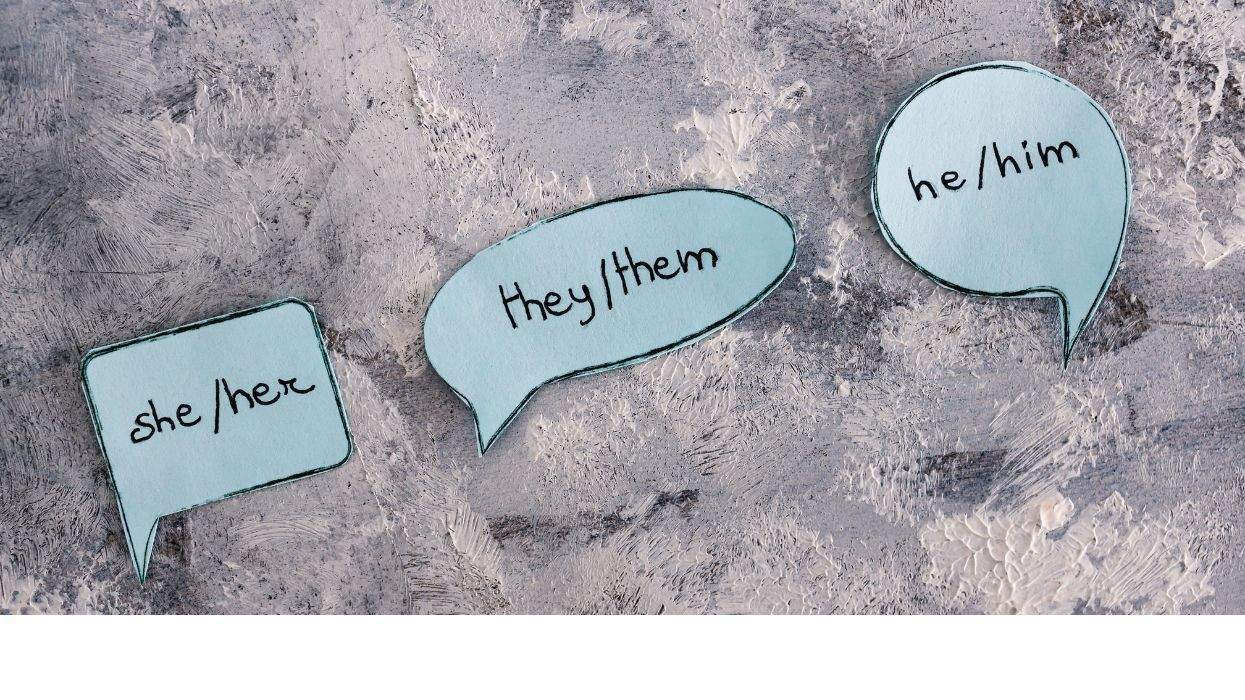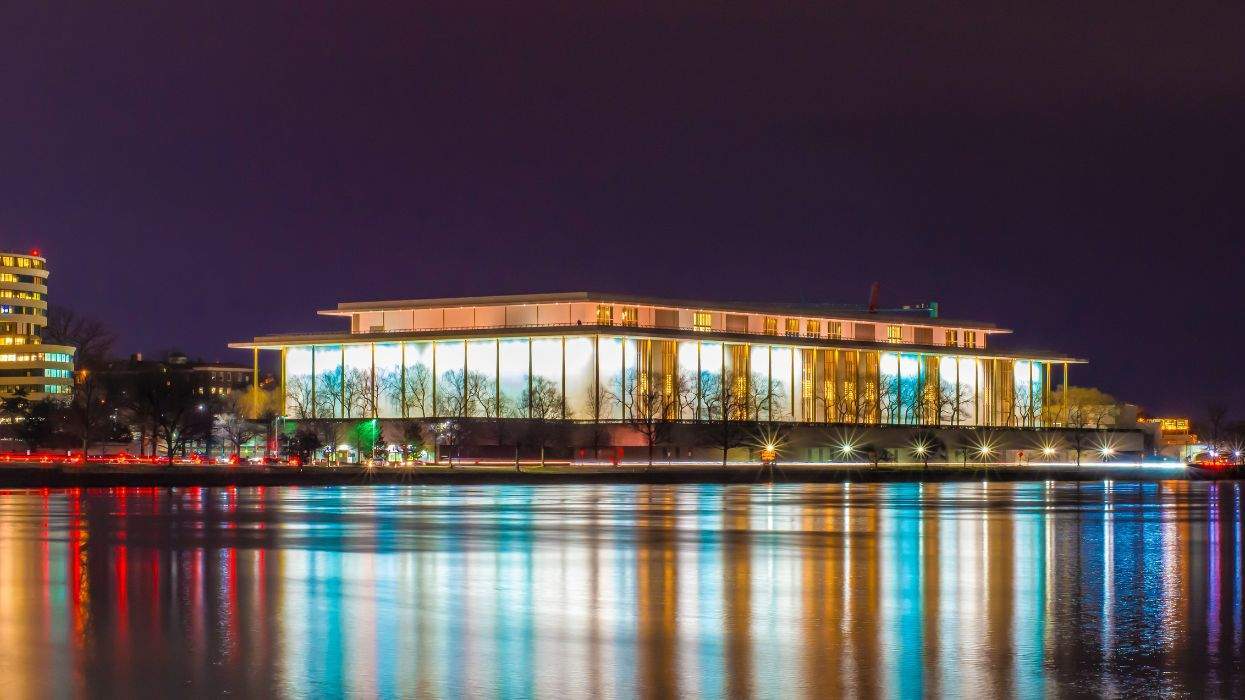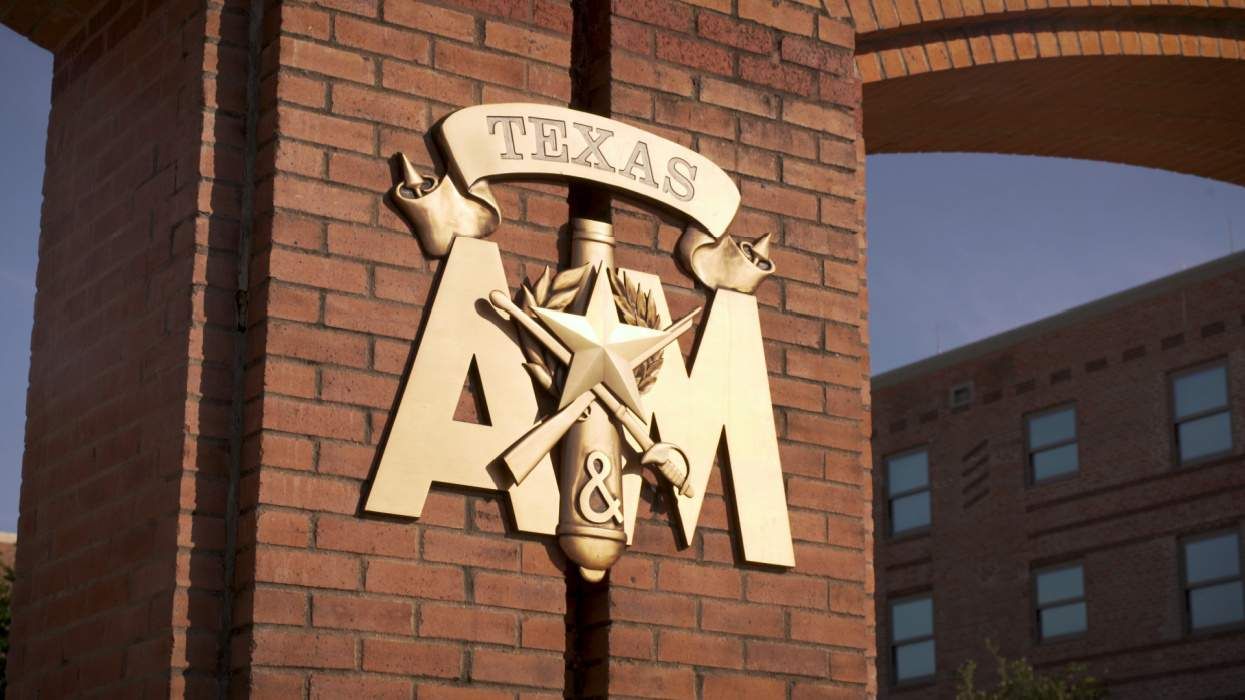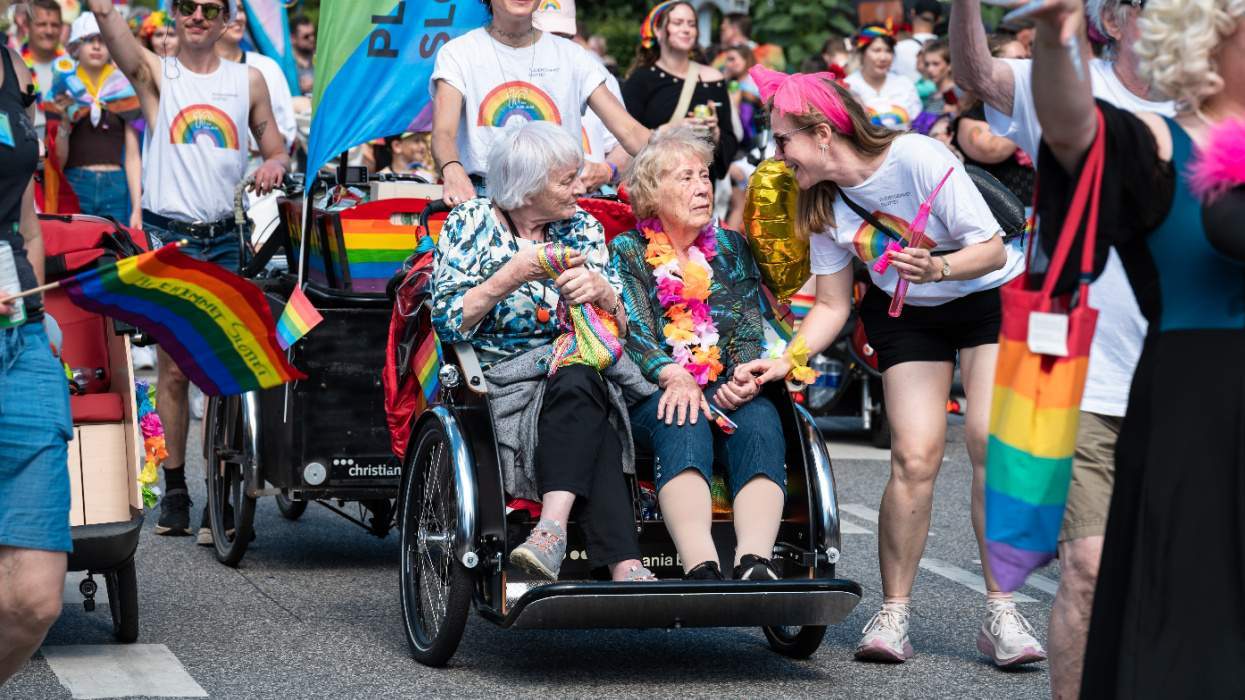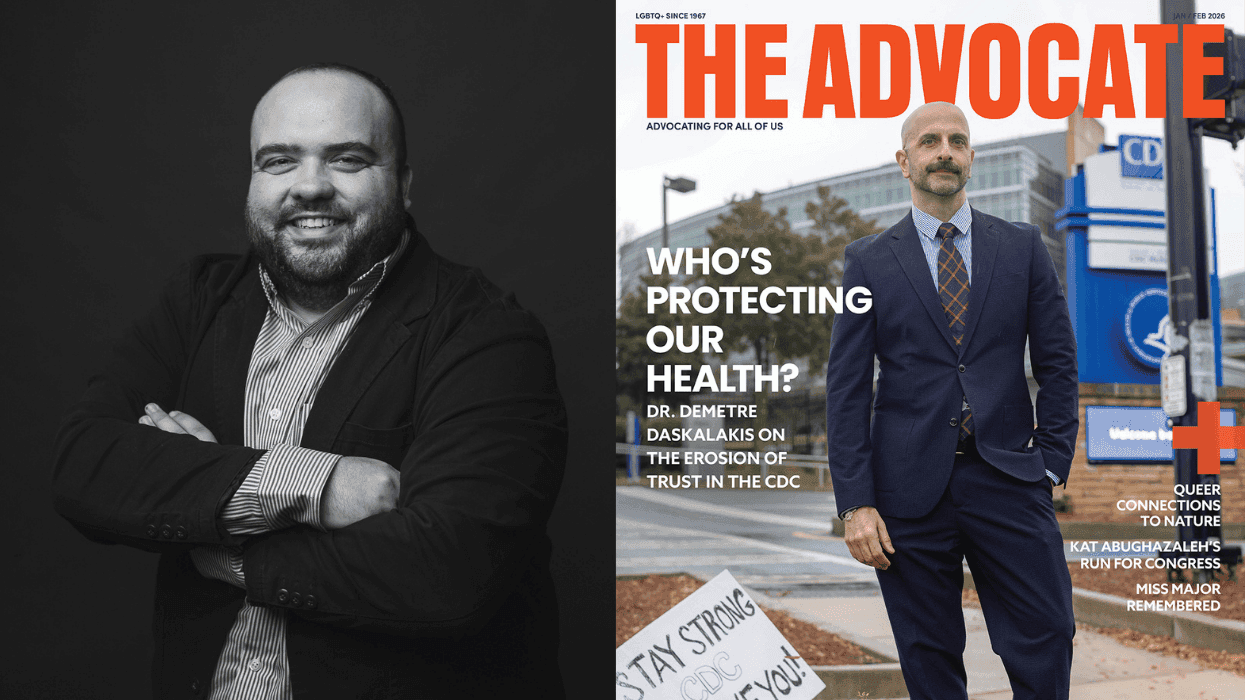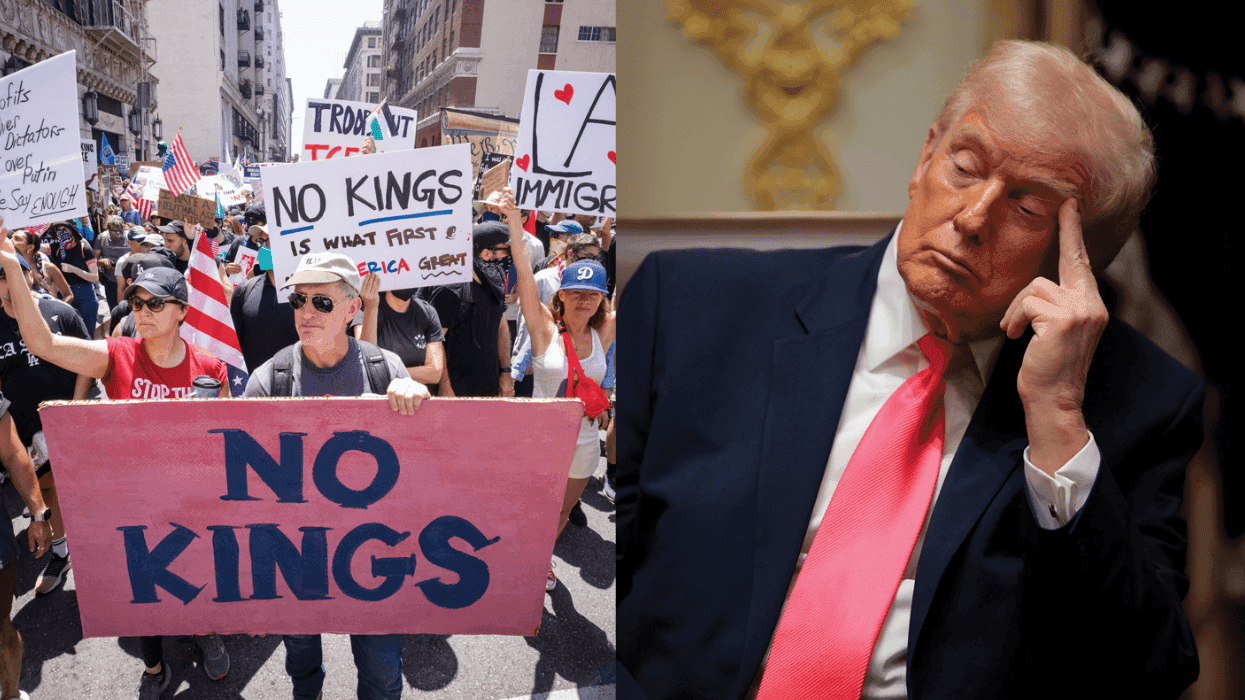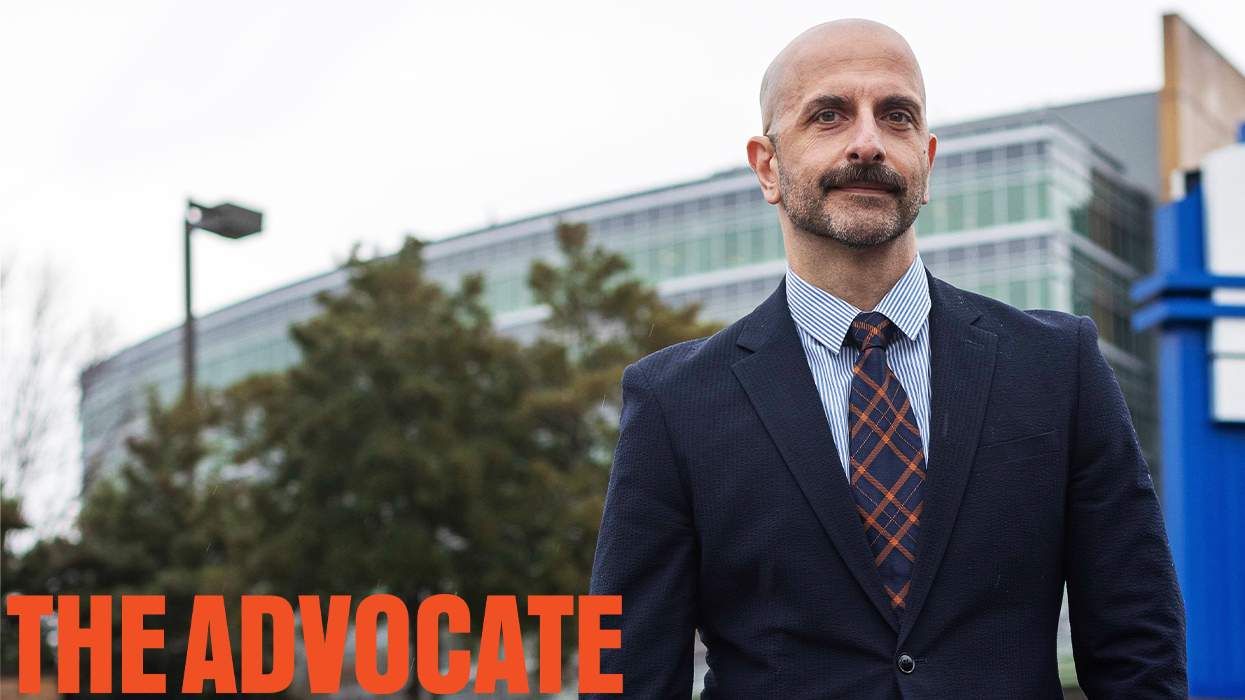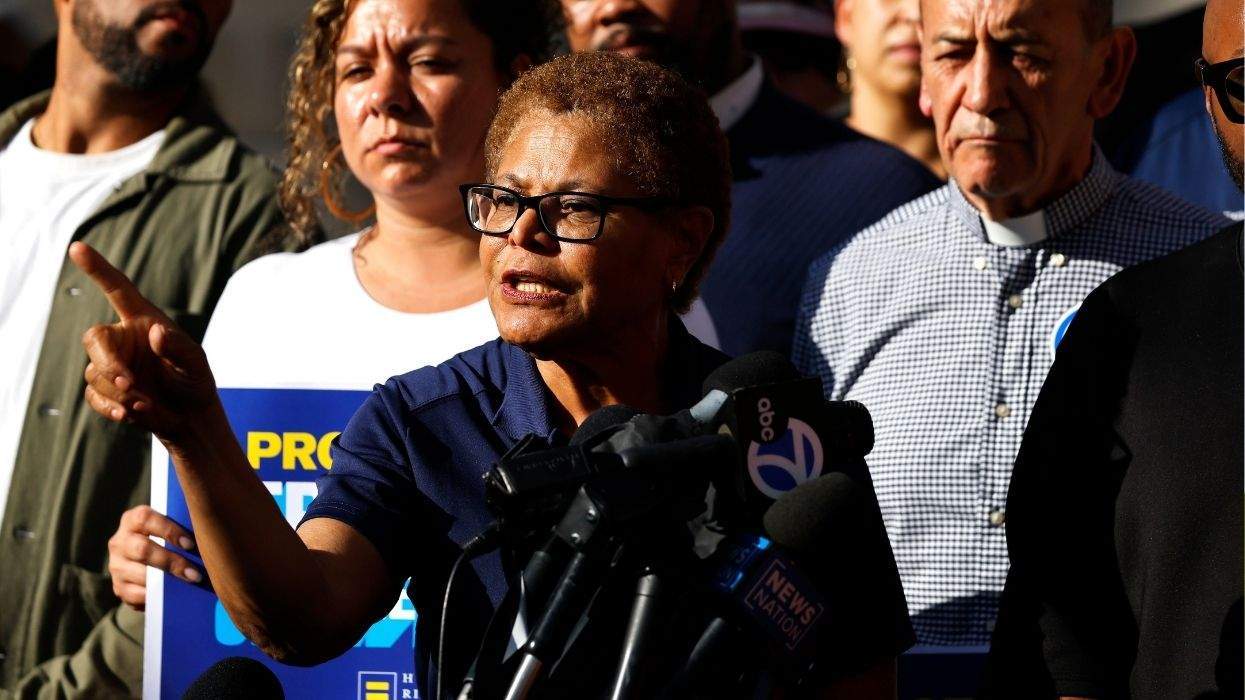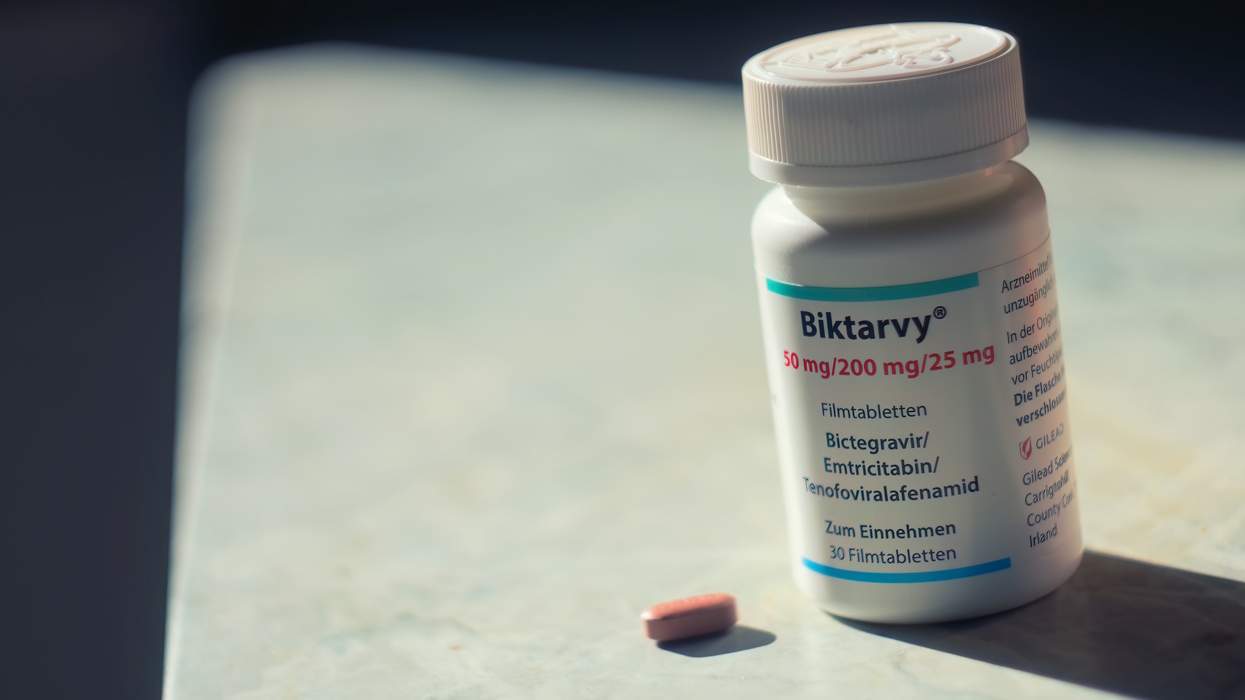The fact that Phyllida Lloyd, the director of the year's most powerful biopic, is a lesbian is no surprise to fans in the United Kingdom. She's been on The Independent's Pink List, a ranking of the 101 most influential gays and lesbians in Britain, for years; in 2009 she was number 7, and this year she's likely to rank higher. But it may come as a surprise to American viewers of The Iron Lady, a riveting look at the life of conservative former British prime minister Margaret Thatcher, a figure reviled by many LGBTs, that spans from childhood to her octogenarian years.
"When Phyllida told me she had a film that circles Margaret Thatcher's life and the issues around a woman leader, I was immediately interested," says Meryl Streep, who plays Thatcher in both her prime and senior years (under some serious makeup). "There aren't that many filmmakers who are interested in what it means to be a woman leader."
Lloyd came to fame directing opera and theater, including the smash stage musical Mamma Mia! She also directed Streep in the screen adaptation, which became the all-time top-grossing film in the U.K. That gave Lloyd and her American star some leeway when it came to delving in to the life of Britain's most significant female leader since Queen Elizabeth I.
The Advocate: The Iron Lady isn't really a political film, even though it covers 40 years of British politics. Was that intentional?
Phyllida Lloyd: Yes. We were trying to tell a more universal story about the cost of a big life -- the cost of a career -- on oneself, family, colleagues. So if it was political, it was political because it put this little old lady at the center of it.
Did you get any flak for casting an American as Thatcher?
We got surprisingly little. I think the fact that Meryl is an outsider is also a match for Thatcher's outsiderness in her [political] party, both as a woman and as someone from a lower-class background.
Some of the most captivating scenes are in the Parliament, where there are rows and rows of men with Thatcher at the center. Were there truly no other women, or was this a cinematic way to show how alone she felt?
Exactly that. What I was trying to do was show not how it was in literal terms but what she might have felt.
How much of the history that you're recounting did you personally live through?
Everything once Meryl takes over. I was in my first decade of employment in the 1980s, working in not-for-profit theater. Everybody then was at war with the Conservative Party because they had no regard for the arts or the subsidized arts. We were very fundamentally against her.
She also introduced Section 28, which decreed that public authorities couldn't intentionally promote homosexuality.
Indeed. The other day someone told me she was the Michele Bachmann of the 1980s, and I was like, "Whoa! Stop right there!" Thatcher would not even find a place in the Republican Party at the moment. She's far, far to the left of that. She voted pro-choice; she voted to decriminalize homosexuality. She was very nonjudgmental about people's sexual transgressions. So I don't know if [Section 28] was a personal crusade, but in the '80s it was all I could see, so I was unaware that she had a somewhat tolerant view of people's private lives.
Under Britain's current prime minister, there are civil partnerships. Could that have happened under Thatcher's rule?
No. But I don't know whether that was Thatcher or the '80s. Did anywhere have civil partnerships in the '80s? I'm not sure that they did.
In the film Thatcher is both sympathetic and infuriating, which might make fans and detractors walk away conflicted.
I think there's turmoil, just as there is about Thatcher herself. On the one hand, there are those who feel to show her in this state of fragility is iniquitous, and on the other, that humanizing her is a crime. It's interesting because it seems to go way beyond -- Tony Blair, for example, definitely contributes to hundreds of thousands of deaths in Iraq, and yet nobody bats an eyelid about humanizing him in the film. But while there is an argument to make that [Thatcher] contributed to the misery of many communities by putting them out of work, she didn't actually send them to their graves. So there is something slightly heightened about this language of venom that she has ignited as a woman.
Several of the scenes play like Shakespearean theater.
We talked to a lot about King Lear and how there was a parallel with Margaret: A once-mighty leader brought down partly by their own hubris and partly by the treachery of their colleagues. And given that we were shooting her memories entirely from her point of view, it seemed this prompted me into a kind of heightened theatricality about the past in a way that the present was rather static and monochrome.
How does being a woman and a lesbian affect the way you make films?
I'm interested in addressing that at least 50% of the audience is female and making them feel that they are 50% of the world, not 10% or 5%, to somehow make women feel more part of things. Because I'm 54, and I feel that my generation still struggles with entitlement. The feeling of, Gosh, I'm lucky to have this gig, let's just get on with it. I hope the generation that comes behind me is less neurotic. I hope they are about their sexuality as well. I feel like the theater has been an extremely gender-friendly, gay-friendly place. That's why so many of us have found homes in it. It wasn't until I stepped onto a big movie set that I kind of realized that I was a woman because everybody was calling each other "sir" on the set, which is something I never experienced. I have become more aware of being a minority working in the movies than I was working in the theater. I would hope that is gradually changing.
Another Iron Lady on Chronicling the Original
Editor's Note: With British prime minister Margaret Thatcher passing away on Monday at 87, read The Advocate's interview from 2012 with the lesbian filmmaker who chronicled her life.
